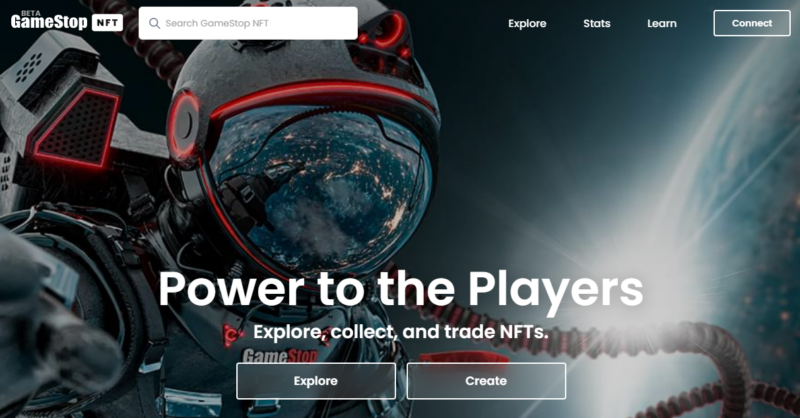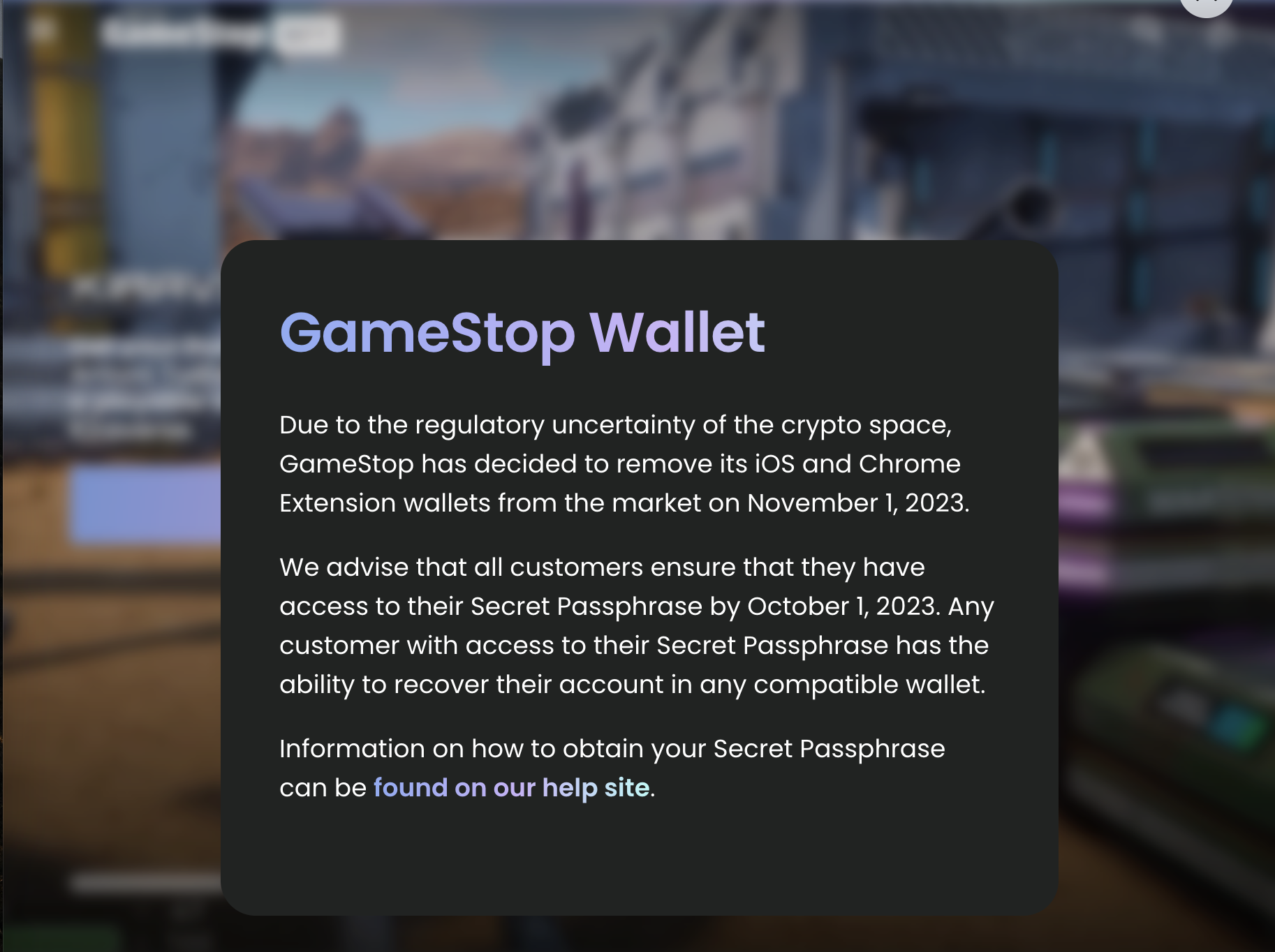
GameStop will still sell you NFTs, but you now have to store and secure them yourself. The game store is ending the wallet app it offered for iOS devices and Chrome browsers as of November 1 and is telling customers to double-check their “Secret Passphrase.”
GameStop’s notice at the top of its wallet page and other crypto-related sub-sites cites “the regulatory uncertainty of the crypto space” for the removal of its wallet extension and app. The Securities and Exchange Commission sued Binance and Coinbase in June, citing the exchanges’ failure to provide protections for customers, keep records, and accept inspection by the SEC.
As noted by Game Developer, though, the decision may have been in the works before that. December 2022 layoffs at GameStop heavily impacted the team working on the Ethereum-based blockchain wallet.

“We advise that all customers ensure that they have access to their Secret Passphrase by October 1, 2023,” GameStop’s notice continues. That passphrase should allow wallet holders to “recover their account in any compatible wallet.” GameStop’s wallet FAQs suggest that MetaMask and some hardware wallets should be compatible after exporting keys, though there are a lot of details to read up on.
GameStop launched the wallet in May 2022, less than two weeks after Bitcoin and other virtual currencies experienced widespread destabilization and sell-offs. Still, GameStop seemed bullish on the blockchain and launched its own late-coming NFT marketplace in July of that year to non-epic returns.
News that GameStop was moving into blockchain gave the company’s stock yet another rocket-boost in early 2022, after short squeezes and “meme stock” status boosted it more than 1,500 percent at one point in 2021. Besides failing to attract the expected revenue and interest, GameStop’s NFT marketplace also angered indie game developers whose work was being embedded and sold without permission or compensation.
During a December 2022 conference call, GameStop’s CEO at the time, Matt Furlong, said that the retailer had “proactively minimized exposure to cryptocurrency risk throughout the year,” held no materials crypto assets, and would “not risk meaningful stockholder capital in the space.” Furlong was fired in June “without cause” after GameStop reported a more than $50 million net loss for the quarter. GameStop’s executive chair, Ryan Cohen, said at the time that the company would focus on “capital allocation and overseeing management,” while seeking to “achieve sustained profitability.”
Ars reached out to GameStop for comment and will update this post if we receive new information.
Listing image by GameStop
https://arstechnica.com/?p=1958890

